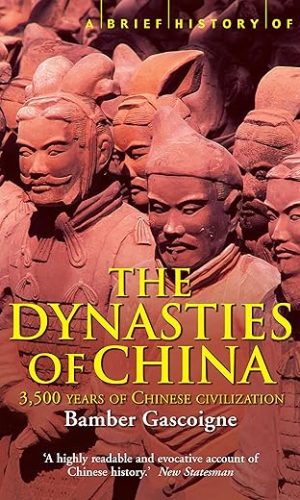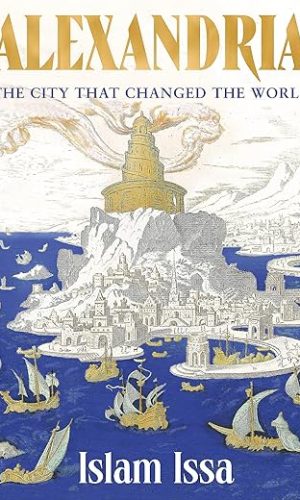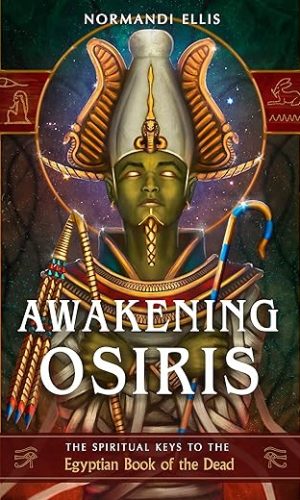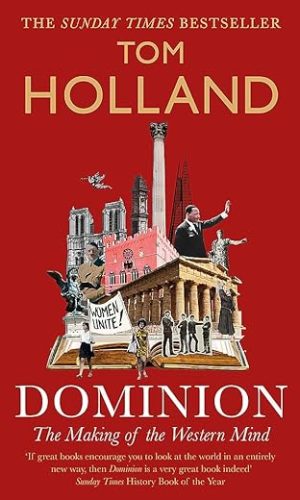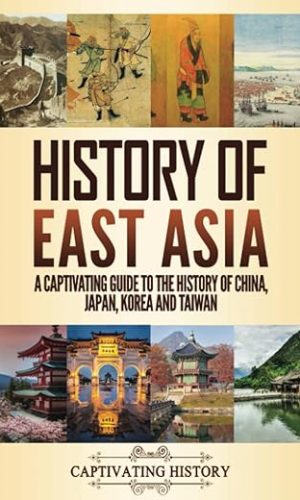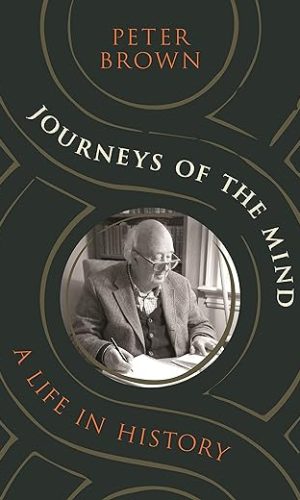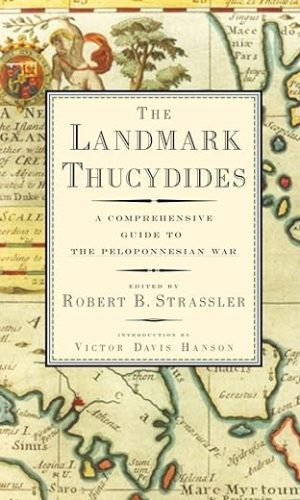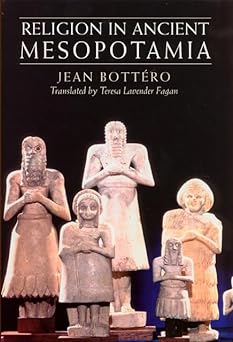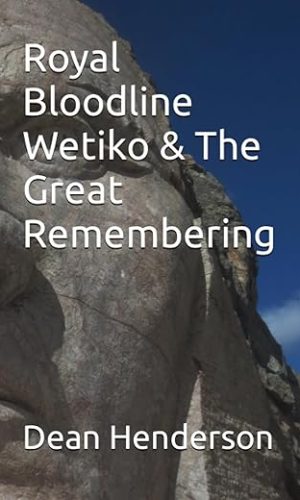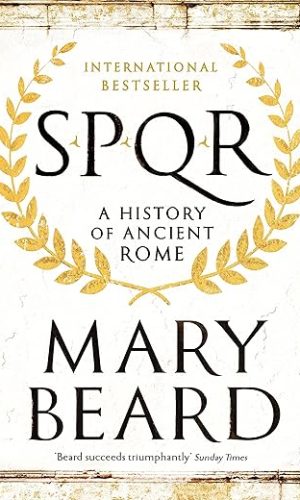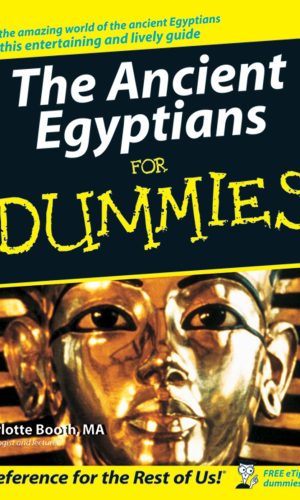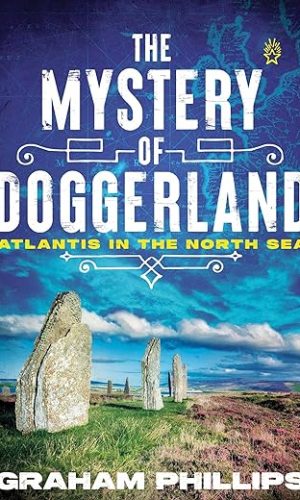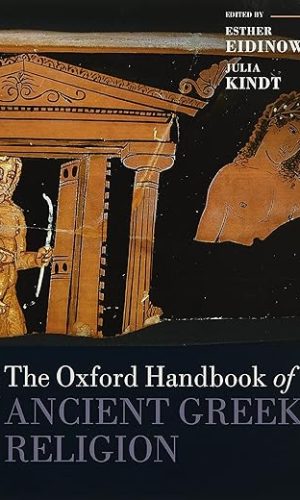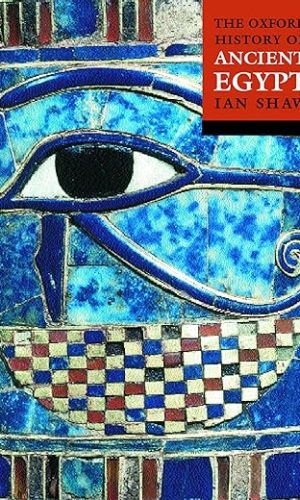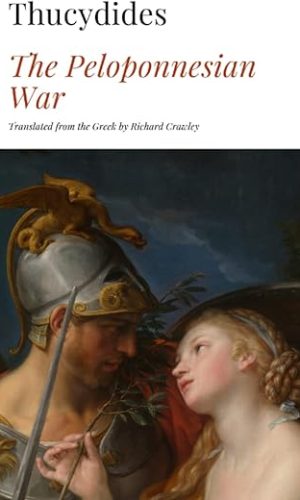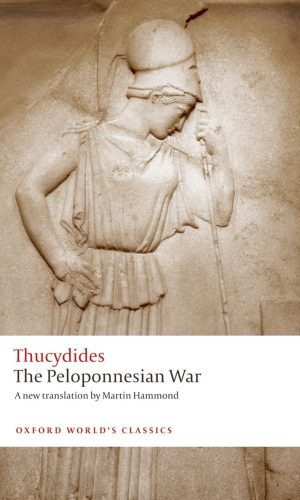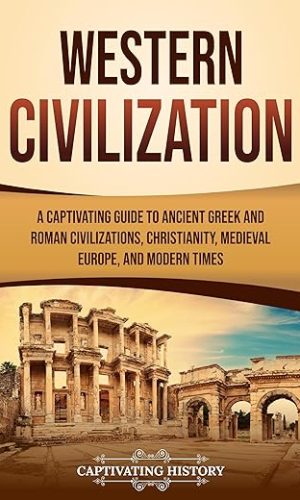Ancient History & Civilisation
-
A Brief History of the Dynasties of China (Brief History) (Brief Histories)
Although China’s great empire lasted for longer than any other, no country has suffered so great an imbalance between the fame of its art and obscurity of its history. The names of the great dynasties are familiar, yet who can actually locate a T’ang horse or a Ming vase in its social or cultural context?
By focusing on the key colourful characters of the eight major dynasties, Bamber Gascoigne brings to life 3500 years of Chinese civilization. His bird’s-eye view starts on the borders of myth. It moves swiftly on to the greatest achievements of language and thought, the cultural treasures and imperial palaces, wars won and lands lost to the Mongols, finally to arrive at the 1912 Revolution, which contained within it the seeds of Communism that ensured the overthrow of the last emperor. Via this portrait of an empire and its peoples he has opened the door to a world for too long inaccessible to the West.
Read more
£5.10£9.50 -
African Religion: Anunian Theology: ANUNIAN THEOLOGY & THE MYSTERIES OF RA: Volume 1 (Mysteries of Ra and the Secrets of the Creation Myth)
Detalis the religious theology of the most anicnet city of Ancient Egypt. The Philosophy of Anu and The Mystical Teachings of The Ancient Egyptian Creation Myth Discover the mystical teachings contained in the Creation Myth and the gods and goddesses who brought creation and human beings into existence. The Creation Myth holds the key to understanding the universe and for attaining spiritual Enlightenment.Read more
£13.50£16.90 -
Alexandria: The City that Changed the World: ‘Monumental’ – Daily Telegraph
‘Monumental and vividly imagined . . . a fitting tribute to a city that has survived, changed and grown for so many centuries’
Daily Telegraph‘A cornucopia of fascinating details, every page revealing a new delight’
Paul Strathern, author of The Medici: Godfathers of the RenaissanceA city drawn in sand.
Inspired by the tales of Homer and his own ambitions of empire, Alexander the Great sketched the idea of a city onto the sparsely populated Egyptian coastline. He did not live to see Alexandria built, but his vision of a sparkling metropolis that celebrated learning and diversity was swiftly realised and still stands today.
Situated on the cusp of Africa, Europe and Asia, great civilisations met in Alexandria. Together, Greeks and Egyptians, Romans and Jews created a global knowledge capital of enormous influence: the inventive collaboration of its citizens shaped modern philosophy, science, religion and more. In pitched battles, later empires, from the Arabs and Ottomans to the French and British, laid claim to the city but its independent spirit endures.
In this sweeping biography of the great city, Islam Issa takes us on a journey across millennia, rich in big ideas, brutal tragedies and distinctive characters, from Cleopatra to Napoleon. From its humble origins to dizzy heights and present-day strife, Alexandria tells the gripping story of a city that has shaped our modern world.
‘A multifaceted history of an enthralling city’
Lloyd Llewellyn-Jones, author of Persians: The Age of the Great KingsRead more
£23.70£28.50 -
Awakening Osiris: The Spiritual Keys to the Egyptian Book of the Dead
“Awakening Osiris is a perennial, a classic in the combined realm of Egyptology, spirituality, and pure literary achievement.”
–Kathleen McGowan, New York Times bestselling author of The Expected One“Awakening Osiris is not only a translation and a book of Egyptian religion, but also a spiritual work that will serve many Pagans as a prayer book of sorts, a book of meditations–something not to be read and left on the shelf, but to return to repeatedly.”
–Judika Illes, author of Encyclopedia of SpiritsA beautiful and engaging rendering of The Egyptian Book of the Dead that reveals the soul and spirit of Egypt
The Egyptian Book of the Dead is one of the oldest and greatest classics of Western spirituality. With Awakening Osiris, Ellis has transformed the ancient stories told through hieroglyphs for modern readers and approaches the Book of the Dead as a profound spiritual text capable of speaking to us today. These writings suggest that the divine realm and the human realm are not altogether separate; they remind us that the natural world–the substance of our lives–is fashioned from the stuff of the gods.
This edition replaces the previous edition (ISBN 978-0933999749) and contains a new introduction and study guide by the author.
Read more
£12.60£15.20 -
Dominion: The Making of the Western Mind
‘If great books encourage you to look at the world in an entirely new way, then Dominion is a very great book indeed . . . Written with terrific learning, enthusiasm and good humour, Holland’s book is not just supremely provocative, but often very funny’ Sunday Times History Book of the Year
Christianity is the most enduring and influential legacy of the ancient world, and its emergence the single most transformative development in Western history. Even the increasing number in the West today who have abandoned the faith of their forebears, and dismiss all religion as pointless superstition, remain recognisably its heirs. Seen close-up, the division between a sceptic and a believer may seem unbridgeable. Widen the focus, though, and Christianity’s enduring impact upon the West can be seen in the emergence of much that has traditionally been cast as its nemesis: in science, in secularism, and yes, even in atheism.
That is why Dominion will place the story of how we came to be what we are, and how we think the way that we do, in the broadest historical context. Ranging in time from the Persian invasion of Greece in 480 BC to the on-going migration crisis in Europe today, and from Nebuchadnezzar to the Beatles, it will explore just what it was that made Christianity so revolutionary and disruptive; how completely it came to saturate the mind-set of Latin Christendom; and why, in a West that has become increasingly doubtful of religion’s claims, so many of its instincts remain irredeemably Christian. The aim is twofold: to make the reader appreciate just how novel and uncanny were Christian teachings when they first appeared in the world; and to make ourselves, and all that we take for granted, appear similarly strange in consequence. We stand at the end-point of an extraordinary transformation in the understanding of what it is to be human: one that can only be fully appreciated by tracing the arc of its parabola over millennia.
Read more
£6.20£12.30Dominion: The Making of the Western Mind
£6.20£12.30 -
History of East Asia: A Captivating Guide to the History of China, Japan, Korea and Taiwan (Asian History)
If you want to discover the captivating history of East Asia, then keep reading…Four captivating manuscripts in one book:
- History of China: A Captivating Guide to Chinese History, Including Events Such as the First Emperor of China, the Mongol Conquests of Genghis Khan, the Opium Wars, and the Cultural Revolution
- History of Japan: A Captivating Guide to Japanese History, Including Events Such as the Genpei War, Mongol Invasions, Battle of Tsushima, and Atomic Bombings of Hiroshima and Nagasaki
- History of Korea: A Captivating Guide to Korean History, Including Events Such as the Mongol Invasions, the Split into North and South, and the Korean War
- History of Taiwan: A Captivating Guide to Taiwanese History and the Relationship with the People’s Republic of China
Here are just some of the topics covered in part 1 of this book:
- The Land of the Yellow Emperor
- Imperial China Emerges
- The Supremacy of the Han, 202 BCE–220 CE
- The Golden Age: The Tang Dynasty, 618–907
- The Song Dynasty, 960–1279
- Kublai Khan: The Yuan Dynasty, 1271–1368
- The Great Ming Dynasty, 1368–1644
- The Rise of the Qing, 1636–1912
- Revolutionary Madness
- The Republic of China to the People’s Republic of China
- And much, much more!
Here are just some of the topics covered in part 2 of this book:
- Children of the Sun
- Warring Clans
- The Two Imperial Courts
- Edo Japan: Part One-1603 to 1638
- Edo Period: Part Two-1638 to 1868
- The Meiji Restoration
- Foreign Relations
- The Taisho Era
- The Showa Era
- Japan in World War II and Its Aftermath
- Heisei Era
- And much, much more!
Here are just some of the topics covered in part 3 of this book:
- Land of the Bear
- The Dragon of the East Sea
- Dynasties Rise and Fall
- The Joseon Dynasty of Goryeo
- Foreign Invasions
- Merchants, Farmers, and Foreigners
- From Independence to Annexation
- Korea at War
- North Korea
- South Korea
- And much, much more!
Here are just some of the topics covered in part 4 of this book:
- Formosa: Beautiful Island
- The Arrival of the Chinese and Their Religion
- The Dutch Trading Years
- The Ming, The Qing, and Japan: The War Years
- Japanese Taiwan
- The Sino-Japanese War & World War II
- Taiwan After World War II
- And much, much more!
So if you want to learn more about the history of East Asia, scroll up and click the “add to cart” button!
Read more
£13.00 -
Ionian Vision: Greece in Asia Minor, 1919-22
Michael Llewellyn-Smith sets the Greek occupation of Smyrna and the war in Anatolia against the background of Greece’s ‘Great Idea’ and of great power rivalries in the Near East. He traces the origins of the Greek statesman Eleftherios Venizelos’s ‘Ionian Vision’ to his joint conception with David Lloyd George of an Anglo-Greek entente in the Eastern Mediterranean. This narrative text presents a comprehensive account of the disaster which has shaped the politics and society of modern Greece.Read more
£12.30 -
Journeys of the Mind: A Life in History
A beautifully written personal account of the discovery of late antiquity by one of the world’s most influential and distinguished historians
The end of the ancient world was long regarded by historians as a time of decadence, decline, and fall. In his career-long engagement with this era, the widely acclaimed and pathbreaking historian Peter Brown has shown, however, that the “neglected half-millennium” now known as late antiquity was in fact crucial to the development of modern Europe and the Middle East. In Journeys of the Mind, Brown recounts his life and work, describing his efforts to recapture the spirit of an age. As he and other scholars opened up the history of the classical world in its last centuries to the wider world of Eurasia and northern Africa, they discovered previously overlooked areas of religious and cultural creativity as well as foundational institution-building. A respect for diversity and outreach to the non-European world, relatively recent concerns in other fields, have been a matter of course for decades among the leading scholars of late antiquity.
Documenting both his own intellectual development and the emergence of a new and influential field of study, Brown describes his childhood and education in Ireland, his university and academic training in England, and his extensive travels, particularly in the eastern Mediterranean and the Middle East. He discusses fruitful interactions with the work of scholars and colleagues that include the British anthropologist Mary Douglas and the French theorist Michel Foucault, and offers fascinating snapshots of such far-flung places as colonial Sudan, midcentury Oxford, and prerevolutionary Iran. With Journeys of the Mind, Brown offers an essential account of the “grand endeavor” to reimagine a decisive historical moment.
Read more
£31.30£36.10Journeys of the Mind: A Life in History
£31.30£36.10 -
Landmark Thucydides
Thucydides called his account of two decades of war between Athens and Sparta “a possession for all time,” and indeed it is the first and still the most famous work in the Western historical tradition.Considered essential reading for generals, statesmen, and liberally educated citizens for more than 2,000 years, The Peloponnesian War is a mine of military, moral, political, and philosophical wisdom.
However, this classic book has long presented obstacles to the uninitiated reader. Written centuries before the rise of modern historiography, Thucydides’ narrative is not continuous or linear. His authoritative chronicle of what he considered the greatest war of all time is rigorous and meticulous, yet omits the many aids to comprehension modern readers take for granted—such as brief biographies of the story’s main characters, maps and other visual enhancements, and background on the military, cultural, and political traditions of ancient Greece.
Robert Strassler’s new edition amends these omissions, and not only provides a new coherence to the narrative overall but effectively reconstructs the lost cultural context that Thucydides shared with his original audience. Based on the venerable Richard Crawley translation, updated and revised for modern readers, The Landmark Thucydides includes a vast array of superbly designed and presented maps, brief informative appendices by outstanding classical scholars on subjects of special relevance to the text, explanatory marginal notes on each page, an index of unprecedented subtlety and depth, and numerous other useful features. Readers will find that with this edition they can dip into the text at any point and be immediately oriented with regard to the geography, season, date, and stage of the conflict.
In any list of the Great Books of Western Civilization, The Peloponnesian War stands near the top. This handsome, elegant, and authoritative new edition will ensure that its greatness is appreciated by future generations.
Read more
£26.30£33.30Landmark Thucydides
£26.30£33.30 -
Religion and the Greeks (Classical World)
No area of Greek life was wholly untouched by religion, and a basic knowledge of this aspect of life is essential to anyone seeking a proper understanding of the classical world. In this engaging survey Robert Garland brings out the unique quality of Greek religion – its practical and worldly approach to man’s relationship with the divine – and shows how religious ritual was integral to the daily routine of both public and private life.Read more
£16.10 -
Religion in Ancient Mesopotamia
One of the world’s foremost experts on Assyriology, Jean Bottéro has studied the religion of ancient Mesopotamia for more than fifty years. Building on these many years of research, Bottéro here presents the definitive account of one of the world’s oldest known religions. He shows how ancient Mesopotamian religion was practiced both in the public and private spheres, how it developed over the three millennia of its active existence, and how it profoundly influenced Western civilization, including the Hebrew Bible.
Read more
£22.80 -
Religions of Rome
This book offers a radical new survey of more than a thousand years of religious life at Rome. It sets religion in its full cultural context, between the primitive hamlet of the eighth century BC and the cosmopolitan, multicultural society of the first centuries of the Christian era. The narrative account is structured around a series of broad themes: how to interpret the Romans’ own theories of their religious system and its origins; the relationship of religion and the changing politics of Rome; the religious importance of the layout and monuments of the city itself; changing ideas of religious identity and community; religious innovation – and, ultimately, revolution. The companion volume, Religions of Rome: A Sourcebook, sets out a wide range of documents richly illustrating the religious life in the Roman world.Read more
£27.50Religions of Rome
£27.50 -
Royal Bloodline Wetiko & The Great Remembering
Royal Bloodline Wetiko & The Great Remembering delves into the history of the royal Annunaki bloodline, which arrived in Sumeria around 8,500 years ago. The Cree word wetico means “cannibal of the flesh and soul”. Henderson tracks this savage bloodline from Sumeria through Babylon, Egypt and Rome to their current power base in the City of London. More importantly, he deconstructs the methodology used by this Crown to keep humans enslaved and isolated during this relatively brief period of human history. Drawing upon ancient Lakota culture to remind us who we are, Henderson sees a great remembering unfolding which makes this royal bloodline very nervous.Read more
£11.30 -
Spirituality Before Religions: Spirituality is Unseen Science…Science is Seen Spirituality
Spirituality Before Religions, delves deeply into many ideas researched by many brilliant writers and scholars. My ultimate purpose is to synthesize these writings into a comprehensive study of ancient African Deep Thought with Tep Heseb, the Kemetic (Egyptian) process of accurately reckoning by using the correct method of analysis. This clear and concise philosophy guided early humanity into the heavens on earth, while creating a heaven on earth. African educator, Dr. John Henrik Clarke teaches us that to be self-sufficient, people have to see the Creator when they look in the mirror. If not, they will never have a healthy “self-concept.” He reminds us, “Anytime you turn on your own concept of God, you are no longer a free man or woman. No one needs to put chains on your body, because the chains are on your mind. Anytime someone says their God is ugly and they release their God and embraces someone else’s God, there is no hope for their freedom until they once more believe in their own concept of the Deity.”1Dr. Alvin Boyd Kuhn says, “No matter how emotionally, how fanatically the worshipper pours out adoration to a person in objective life, the work of his own evolution is not accomplished until he effectuates the ultimate divinization of the nuclear potentiality of deific fire within his own self-controlled area of consciousness” Dr. Kuhn continues his thought, “The balanced forces of human uplift would be thrown into immediate chaos if it were in the end possible for a man to achieve his apotheosization (deification of a person) vicariously, or in any other way than through his own effort. Man was provided from the start with the presence of a unit of divine fire within the heart of his own way to the goal of glory. All efforts are driven towards the cultivation of the God within man.” These are the main points I will make in Spirituality Before Religions: Spirituality is Unseen Science, Science is Seen Spirituality. Tep Heseb is a major Kemetic (Egyptian) concept that can be interpreted to mean, “An Accurate Reckoning by Using the Correct Method.” We must analyze the Kemetic (Egyptian) writings by using the method applied by Africans for Africans in Africa. There are Two (2) Laws of Cosmic Spirituality 1st Law – Love and Respect the Creator within you; know you are the Creator having a human experience. 2nd Law– Love and Respect the Creator in Nature the same way you love the Creator within yourself. The purpose of “Spirituality Before Religions,” is to demonstrate that humanity’s earliest ideas about spirituality originated in the minds of human beings conceived, born, nurtured, sustained, educated and civilized in the Great Lakes Region in Central/East/South Africa. The Great Lakes Region includes countries we today call Kenya, Uganda, Tanganyika, Congo, and Southern Africa. After these ancient scholars perfected their worldview, they then traveled north, south, east, and west along ancient river systems, developing civilizations in harmony with Nature on the African continent. Over time, they explored the Earth and laid the foundations for all other ethnic stocks and cultures world-wide. As we enter into the Age of Aquarius, we must recognize that it is the Age of the Feminine Principle. There is an indirect and direct relationship between Black Holes, Worm Holes and White Holes in the Cosmos with the Womb of the WombedMan. Black Holes can be compared to the Placenta connected to the mother’s uterine wall, that attracts, captures and sends life through the Umbilical cord that sustains the fetus, through the navel connection.The future wealth of the earth is going to be Solar Power. The energy derived from the light, heat and sound energy of the rays of the sun will advance human technology back to where Kushites had developed thousands of years ago.Read more
£19.50 -
SPQR: A History of Ancient Rome
Mary Beard’s new book Emperor of Rome is available now
Ancient Rome matters.
Its history of empire, conquest, cruelty and excess is something against which we still judge ourselves. Its myths and stories – from Romulus and Remus to the Rape of Lucretia – still strike a chord with us. And its debates about citizenship, security and the rights of the individual still influence our own debates on civil liberty today.
SPQR is a new look at Roman history from one of the world’s foremost classicists. It explores not only how Rome grew from an insignificant village in central Italy to a power that controlled territory from Spain to Syria, but also how the Romans thought about themselves and their achievements, and why they are still important to us. Covering 1,000 years of history, and casting fresh light on the basics of Roman culture from slavery to running water, as well as exploring democracy, migration, religious controversy, social mobility and exploitation in the larger context of the empire, this is a definitive history of ancient Rome.
SPQR is the Romans’ own abbreviation for their state: Senatus Populusque Romanus, ‘the Senate and People of Rome’.
Read more
£8.00£11.40SPQR: A History of Ancient Rome
£8.00£11.40 -
The Ancient Egyptians For Dummies
Unravel the history behind of one of the most fascinating ancient civilisations with this engaging, entertaining and educational guide to the ancient Egyptians. With a complete rundown of ancient Egyptian history and culture alongside insights in to the everyday lives of the Egyptians, you’ll discover how they kept themselves entertained, the gory details of mummification, the amazing creation of the pyramids, the deciphering of hieroglyphs and much more.Read more
£12.70£15.20The Ancient Egyptians For Dummies
£12.70£15.20 -
The Mystery of Doggerland: Atlantis in the North Sea
A scientific exploration of the advanced ancient civilization known as Doggerland or Fairland that disappeared 5,000 years ago.New marine archaeological evidence has revealed the remains of a large land mass to the north of Britain that hosted an advanced civilization 1,000 years before the recognized “first” civilizations of ancient Egypt, Mesopotamia, or India. Remembered in Celtic legends as Tu-lay, and referred to by geologists as Doggerland or Fairland, this civilization began at least as early as 4000 BC but was ultimately destroyed by rising sea levels, huge tsunamis, and a terrible viral epidemic released from melting permafrost during a cataclysmic period of global warming.
Exploring the latest archaeological findings and recent scientific analysis of Doggerland’s underwater remains, Graham Phillips shows that this ancient culture had sophisticated technology and advanced medical knowledge. He looks at evidence detected with remote sensing and seismic profiling of many artificial structures, complex settlements, gigantic earthworks, epic monoliths, and huge stone circles dated to more than 5,500 years ago, preserved beneath the ground and on the ocean floor. He examines evidence of Doggerland’s high-temperature technology, showing how its people were able to melt solid rock to create vitrified structures far stronger than concrete, a technique that modern science cannot replicate. He looks at the small part of the Fairland land mass that still exists: Fair Isle, a tiny island some 45 miles north of the Orkney Islands of Scotland. Phillips shows how, when Fairland sank beneath the waves around 3100 BC, its last survivors traveled by boat to settle in the British Isles, where they established the megalithic culture that built Stonehenge.
Revealing the vast archaeological evidence in support of the existence of Doggerland, as well as its threads of influence in early cultures around the world, Phillips also shows how the fate of this sophisticated ancient culture is a warning from history: the cataclysmic events that happened to the first civilizations could happen again as the world heats up.
Read more
£11.40£16.10The Mystery of Doggerland: Atlantis in the North Sea
£11.40£16.10 -
The Oxford Handbook of Ancient Greek Religion (Oxford Handbooks)
This handbook offers both students and teachers of ancient Greek religion a comprehensive overview of the current state of scholarship in the subject, from the Archaic to the Hellenistic periods. It not only presents key information, but also explores the ways in which such information is gathered and the different approaches that have shaped the area. In doing so, the volume provides a crucial research and orientation tool for students of the ancient world, and also makes a vital contribution to the key debates surrounding the conceptualization of ancient Greek religion.The handbook’s initial chapters lay out the key dimensions of ancient Greek religion, approaches to evidence, and the representations of myths. The following chapters discuss the continuities and differences between religious practices in different cultures, including Egypt, the Near East, the Black Sea, and Bactria and India. The range of contributions emphasizes the diversity of relationships between mortals and the supernatural – in all their manifestations, across, between, and beyond ancient Greek cultures – and draws attention to religious activities as dynamic, highlighting how they changed over time, place, and context.
Read more
£28.50 -
The Oxford History of Ancient Egypt (Oxford Illustrated History)
The Oxford History of Ancient Egypt is the only book available providing detailed historical coverage of Egypt from the early Stone Age to its incorporation into the Roman Empire. The lively essays and beautiful illustrations portray the emergence and development of the distinctive civilization of the ancient Egyptians covering the period from 700,000 BC to ad 311. The authors – each working at the cutting edge of their particular fields – outline the principal
sequence of political events, including detailed examinations of the three so-called Intermediate Periods previously regarded as ‘dark ages’.Against the backdrop of the rise and fall of ruling dynasties, this Oxford History also examines cultural and social patterns, including stylistic developments in art and literature. The pace of change in such aspects of Egyptian culture as monumental architecture, funerary beliefs, and ethnicity was not necessarily tied to the rate of political change. Each of the authors has therefore set out to elucidate, in both words and pictures, the underlying patterns of social and political change, and
to describe the changing face of ancient Egypt, from the biographical details of individuals to the social and economic factors that shaped the lives of the population as a whole.Read more
£3.20 -
The Peloponnesian War
The Peloponnesian War by Thucydides is a timeless classic that has shaped the way we understand the past and the present. It is one of the earliest surviving works of history and a key source of information about the Peloponnesian War, which lasted from 431 to 404 BC. Thucydides was an Athenian general who witnessed the war firsthand and meticulously documented the events as they unfolded. In his work, he offers a fascinating account of the war from both sides, including detailed descriptions of battles, speeches and strategy. He even goes beyond the war’s military aspects, examining its social, economic and political ramifications. Ultimately, The Peloponnesian War serves as an invaluable record of a pivotal event in ancient Greek history and a timeless lesson on the power of human ambition. It has been studied and admired by scholars and students of history for centuries, and its insights remain relevant to this day. This edition utilizes the 1874 translation by Welsh academic Richard Crawley (1840-1893).Thucydides (c. 460 BC–c. 395 BC) was an Athenian historian and general whose work, History of the Peloponnesian War, is widely considered one of the most influential works of history in the Western tradition. Thucydides recounts the conflict between Sparta and Athens in the 5th century BC, and his account is noted for its level of detail and unbiased depiction of the events. His writing style is characterized by a combination of narrative and analysis, which has made his work the subject of much scholarly debate. As a historian, Thucydides was the first to document the causes and effects of the Peloponnesian War. He was also the first to use speeches and documents to explain events in a narrative form. His work provides insight into the politics and culture of ancient Greece, as well as the origins of democracy and war. Thucydides also wrote a brief autobiography, which offers insight into his life and his motivations for writing the History of the Peloponnesian War. In addition to his writing, Thucydides was an active participant in the Peloponnesian War itself. He served as an Athenian general and was involved in the siege of Amphipolis. He was subsequently exiled from Athens for his role in the failed expedition. Thucydides also had a long and distinguished military career, serving in several campaigns and as an advisor to the Athenian government. The legacy of Thucydides has endured for centuries. His work is still widely read and studied, and his analysis of the Peloponnesian War is the basis of much of our understanding of the period. Thucydides is considered one of the most influential historians of all time, and his work is essential reading for those interested in the history of Greece and the ancient world.
Read more
£11.60The Peloponnesian War
£11.60 -
The Peloponnesian War (Oxford World’s Classics)
‘The greatest historian that ever lived’Such was Macaulay’s verdict on Thucydides (c.460-400 BC) and his history of the Peloponnesian War, the momentous struggle between Athens and Sparta as rival powers and political systems that lasted for twenty-seven years from 431 to 404 BC, involved virtually the whole of the Greek world, and ended in the fall of Athens. Thucydides himself was a participant in the war; to his history he brings an awesome intellect, brilliant narrative, and penetrating analysis of the nature of power, as it affects both states and individuals.
Of his own work Thucydides wrote: ‘I shall be content if [my history] is judged useful by those who will want to have a clear understanding of what happened – and, such is the human condition, will happen again … It was composed as a permanent legacy, not a showpiece for a single hearing.’ So it has proved. Of the prose writers of Greece and Rome Thucydides has had more lasting influence on western thought than all but Plato and Aristotle. This new edition combines a masterly translation with comprehensive supporting material.
ABOUT THE SERIES: For over 100 years Oxford World’s Classics has made available the widest range of literature from around the globe. Each affordable volume reflects Oxford’s commitment to scholarship, providing the most accurate text plus a wealth of other valuable features, including expert introductions by leading authorities, helpful notes to clarify the text, up-to-date bibliographies for further study, and much more.Read more
£10.40 -
Western Civilization: A Captivating Guide to Ancient Greek and Roman Civilizations, Christianity, Medieval Europe, and Modern Times
Did you know that Western civilization has influenced the lives of almost everyone alive today?What do you know about Western civilization? It might sound like a funny question to ask, but a lot of people don’t realize how much the West has impacted the world. The values of Western civilization have influenced laws, people’s sense of individuality, and even our morals.
This book will trace Western civilization back to its roots. In this epic quest, we head all the way back to Greece when Greek philosophers like Socrates and Plato pondered the very meaning of life. Explore the depths of knowledge that were probed by Greek schools of thought, such as the Stoics and the Cynics.
Was it better to stoically grin and bear the troubles of life as the Stoics advised, or was it better to simply shrug one’s shoulders and declare everything to be pointless, stupid, and absurd?
And in the middle of these philosophers’ quest, a missionary from Judea named Paul of Tarsus stepped in to spread the “good news” of the Gospels. Christianity and other schools of thought converged, and the Roman Empire helped to facilitate the spread of these ideas far and wide. Soon, the foundations for Western civilization had been firmly established.
These ideas would later undergo renaissances, reformations, and scientific revolutions, but the basic foundation has remained in place. Here, in this book, we explore all of the fascinating aspects of the great framework upon which our modern Western civilization rests.
In this book, you will learn the following:
- Greek philosophical and scientific discoveries
- The convergence of Greco-Roman and Christian beliefs
- How Western civilization transformed during the Middle Ages
- The Renaissance, the Reformation, and the Scientific Revolution
- The march toward modernism and how that impacted the globe
- And much more!
Scroll up and click the “add to cart” button to learn more about Western civilization!
Read more
£3.00

